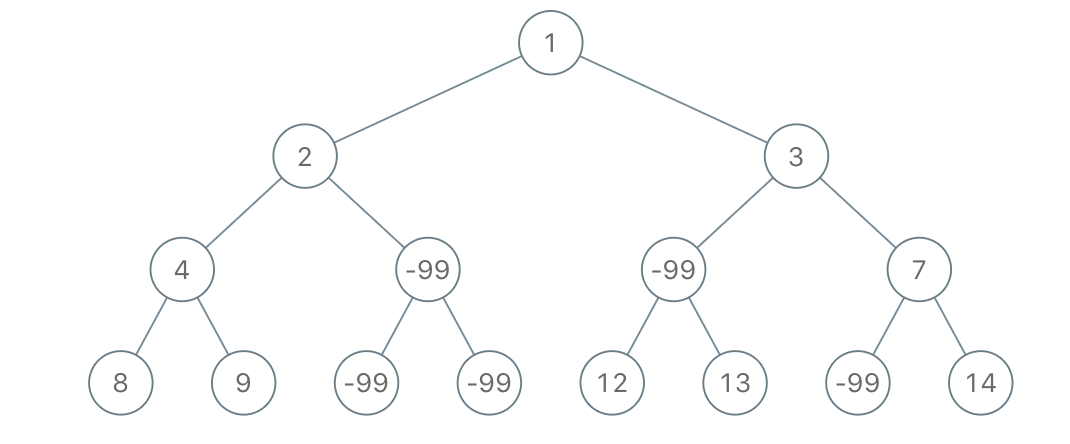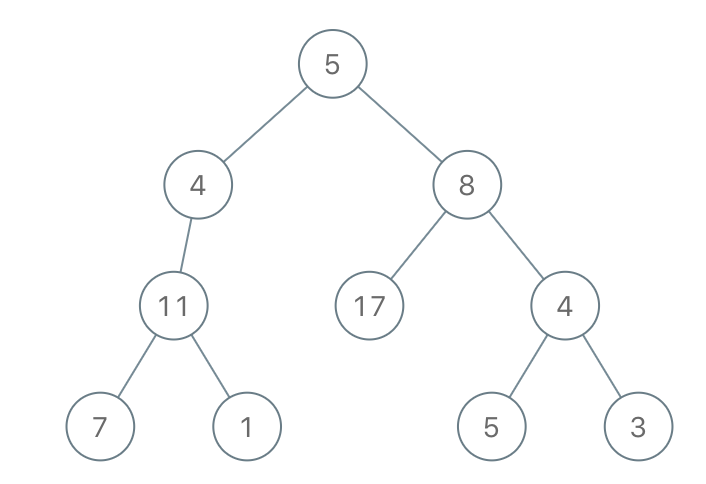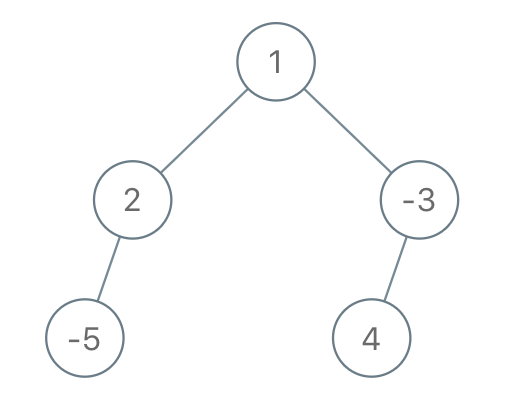1080. Insufficient Nodes in Root to Leaf Paths
1080. Insufficient Nodes in Root to Leaf Paths
Description
Given the root of a binary tree and an integer limit, delete all insufficient nodes in the tree simultaneously, and return the root of the resulting binary tree.
A node is insufficient if every root to leaf path intersecting this node has a sum strictly less than limit.
A leaf is a node with no children.
Example 1:

1 | Input: root = [1,2,3,4,-99,-99,7,8,9,-99,-99,12,13,-99,14], limit = 1 |
Example 2:

1 | Input: root = [5,4,8,11,null,17,4,7,1,null,null,5,3], limit = 22 |
Example 3:

1 | Input: root = [1,2,-3,-5,null,4,null], limit = -1 |
Constraints:
- The number of nodes in the tree is in the range
[1, 5000]. -10^5 <= Node.val <= 10^5-10^9 <= limit <= 10^9
Hints/Notes
- binary tree
Solution
Language: C++
1 | /** |